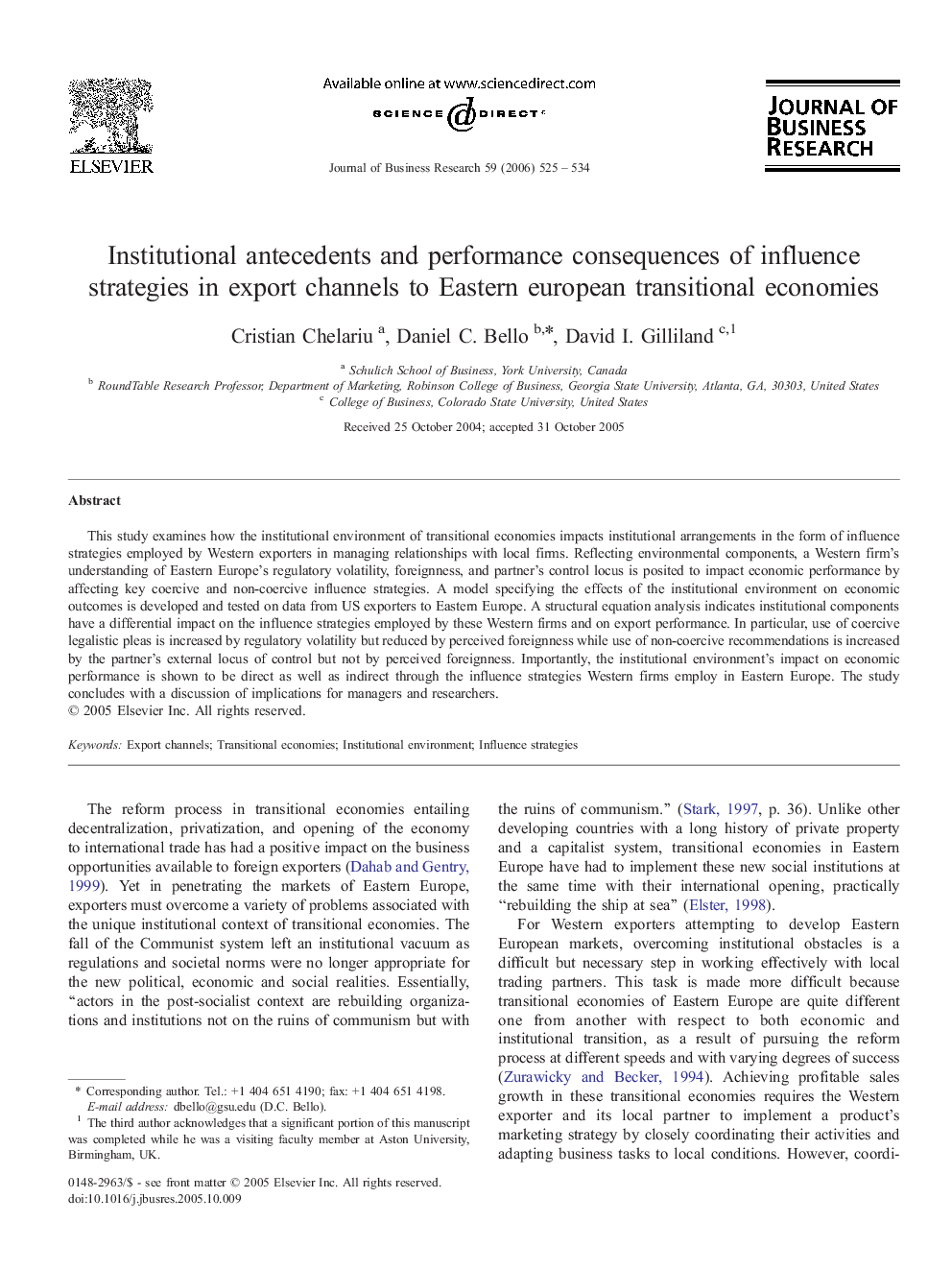| Article ID | Journal | Published Year | Pages | File Type |
|---|---|---|---|---|
| 1018946 | Journal of Business Research | 2006 | 10 Pages |
This study examines how the institutional environment of transitional economies impacts institutional arrangements in the form of influence strategies employed by Western exporters in managing relationships with local firms. Reflecting environmental components, a Western firm's understanding of Eastern Europe's regulatory volatility, foreignness, and partner's control locus is posited to impact economic performance by affecting key coercive and non-coercive influence strategies. A model specifying the effects of the institutional environment on economic outcomes is developed and tested on data from US exporters to Eastern Europe. A structural equation analysis indicates institutional components have a differential impact on the influence strategies employed by these Western firms and on export performance. In particular, use of coercive legalistic pleas is increased by regulatory volatility but reduced by perceived foreignness while use of non-coercive recommendations is increased by the partner's external locus of control but not by perceived foreignness. Importantly, the institutional environment's impact on economic performance is shown to be direct as well as indirect through the influence strategies Western firms employ in Eastern Europe. The study concludes with a discussion of implications for managers and researchers.
